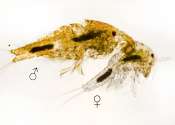Aging-emulating biosystem derived from hTSCs
A research team from the Center for Translational Stem Cell Biology (CTSCB) under the LKS Faculty of Medicine at the University of Hong Kong (HKUMed) has developed the world's first cellular system that can be used to rapidly ...









